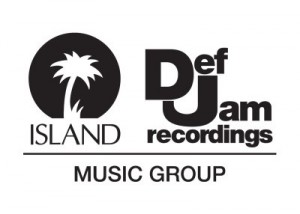
With each passing day, it’s becoming more and more common for albums to sit on shelves unsold and collecting dust—and that’s assuming that there was ever a physical copy of a record manufactured or a record store to house those shelves. Both the cause and effect of this phenomenon, obviously, is that music is rapidly migrating to digital.
Video killed the radio star but the Internet provided a kind of nirvana where they could all get together again with all their friends in other media. It’s become a heaven for those who want to find everything they need in one convenient place (in pajamas, never leaving home) and a hell for those who used to make money off music in traditional ways. Left in somewhat of a no man’s land are those who are trying to make money with music on the Internet. Sure, it’s possible and been done many times (here’s looking at you, Apple and Pandora), but with technology constantly morphing distribution methods and possibilities at speeds that might burst a blood vessel in the head of a 1960s major label A&R man, keeping up with new ideas and ways to make money in the Internet music industry is a game that literally changes every day.
So, while record companies big and small are always on the lookout for the new technology that just might plug the hole in their sinking ships, on the other side there are also independent programmers coming up with music apps that may be of use. From computers to smart phones, music apps have fast become the new way to find and listen to music that appeals to specific listeners, not to mention many other apps that appeal to music lovers (see: an app that turns your phone into an invisible violin). But, all too often, the gap between them and record labels was too wide to cross, so many programmers’ best ideas never got past the views of their friends.
However, a new deal between Island Def Jam (a subsidiary of Universal Music Group) and the Echo Nest, a music app develop platform may be the beginnings of a bridge over that gap.
The Echo Nest is an API (application program interface) that allows developers to use its open format to create applications using the company’s database of songs that has been aggregated by various web crawling and data mining resources. Under the new agreement with Island Def Jam, any developer may use the entirety of the label’s catalog in a music app.
There is a catch, however. Any app created under the agreement then belongs to Island Def Jam, who acts as the publisher and splits any revenue amongst the developer, the Echo Nest and itself.
Though both parties involved admit the deal is a way to test a new possibility in digital music distribution, the results could be interesting for everyone involved, including music listeners and buyers. Island Def Jam stands to gain from an entire new source of independent and smaller developers it might have altogether overlooked until one of them takes advantage of this deal to make a new Ludacris app of the likes the world has never seen before. The Echo Project, which has in the past few years become known for its complex music analyzing algorithms (think of a more complex and digitized version of Pandora’s Music Genome Project), will have any more developers utilizing its technology create the latest music apps.
And, perhaps most importantly, the deal will give developers more freedom to advance their free flowing ideas and continue to revolutionize how we listen to music, without the lengthy and costly process of securing song rights.
What will actually become of this deal is yet to be seen, and will be just one piece in a bigger puzzle currently being put together as those in all aspects of the music industry work together (sometimes) to see where the industry as a whole is headed.

